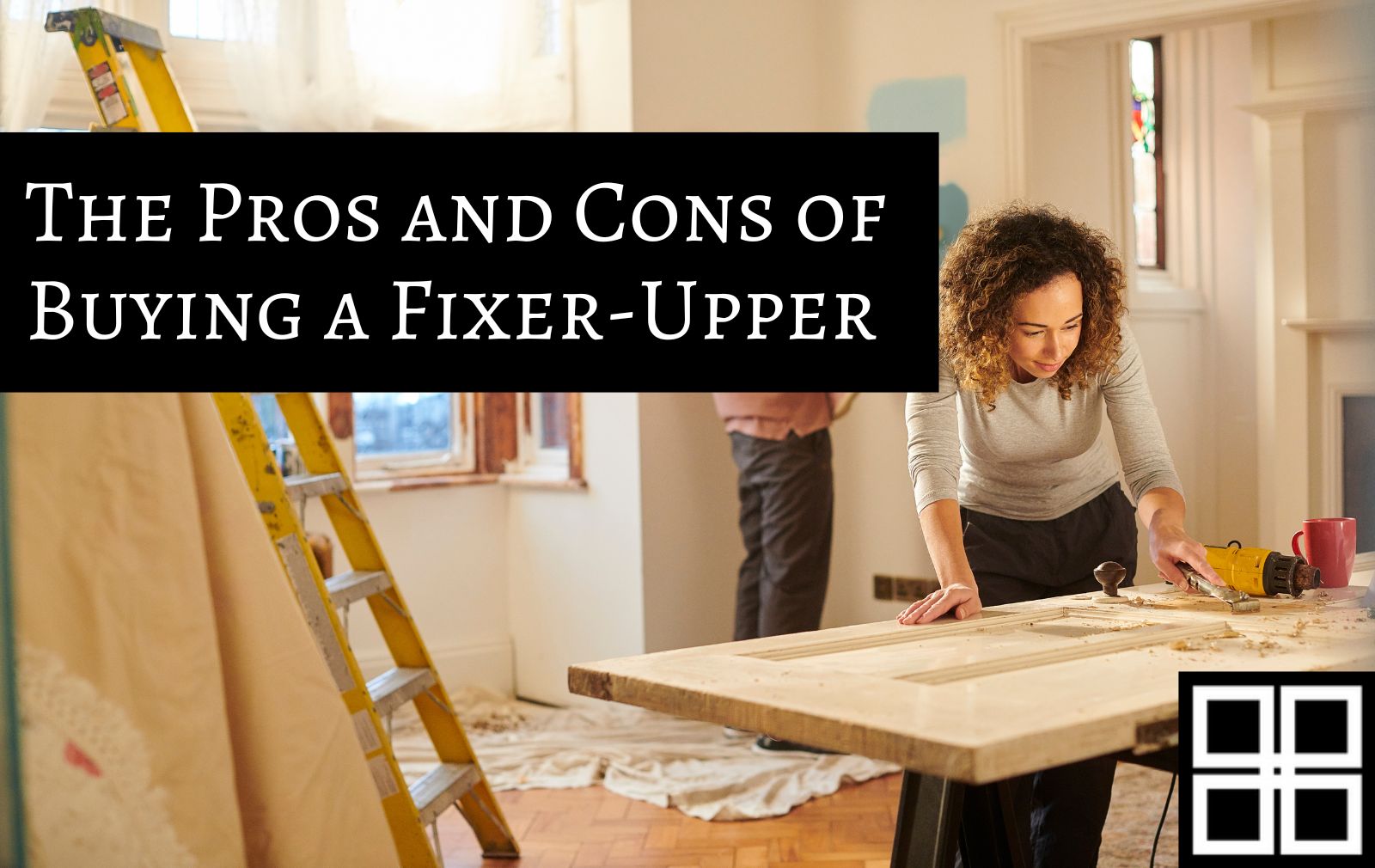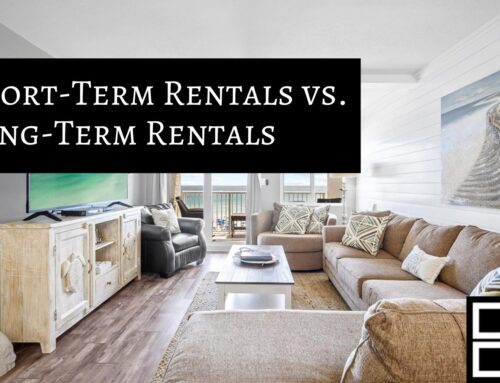The Pros and Cons of Buying a Fixer-Upper
When searching for your next home, the idea of purchasing a fixer-upper can be both exciting and intimidating. A fixer-upper is a property that requires significant renovations but offers the potential for personalization and financial gain. For some, it’s an opportunity to create their dream home; for others, it’s a savvy investment in real estate.
However, buying a fixer-upper isn’t a decision to take lightly. While these homes can come with a lower price tag and opportunities for a higher return on investment, they also come with unique challenges, such as unexpected costs and extensive time commitments. Before diving in, it’s crucial to weigh the benefits and drawbacks carefully to determine if a fixer-upper aligns with your goals and resources.
This blog will explore the pros and cons of buying a fixer-upper and provide practical tips to help you navigate the process.
What Is a Fixer-Upper?
A fixer-upper is a property that requires substantial work before it becomes move-in ready. These homes may need anything from cosmetic updates, like new paint and flooring, to major renovations, such as roof replacements or structural repairs. For many buyers, a fixer-upper presents an opportunity to purchase a home in a desirable area for less money than a move-in-ready counterpart.
Fixer-uppers appeal to a range of buyers, including:
- Real Estate Investors looking to renovate and resell for a profit.
- First-Time Homebuyers hoping to break into the market at a lower price point.
- Creative Buyers who want to transform a house into a personalized dream home.
While the potential rewards can be enticing, it’s important to understand what you’re committing to when purchasing a fixer-upper. Renovations can be complex, and these projects often require careful planning, a flexible budget, and a willingness to tackle the unexpected.
By fully understanding what a fixer-upper entails, you’ll be better equipped to decide if this type of property is the right fit for you.
Benefits of Buying a Fixer-Upper
Buying a fixer-upper can be a rewarding experience, offering unique advantages for buyers who are willing to put in the effort. Here are some of the key benefits:
1. Lower Purchase Price
One of the biggest draws of fixer-uppers is their affordability. Compared to move-in-ready homes, fixer-uppers often come with a significantly lower price tag, making them an attractive option for budget-conscious buyers. Additionally, lower purchase prices can mean smaller down payments and reduced property taxes, providing savings upfront and over time.
2. Customization Opportunities
Fixer-uppers provide a blank canvas for creativity. You have the freedom to design a home that fits your personal style and functional needs. From selecting finishes to reconfiguring layouts, a fixer-upper allows you to transform a property into a truly one-of-a-kind space. For those with a specific vision, this level of customization is invaluable.
3. Potential for a Higher ROI (Return on Investment)
For real estate investors, the potential to create equity through renovations is a major incentive. By purchasing a fixer-upper at a lower price and making strategic upgrades (like buying new kitchen appliances), buyers can increase the property’s value significantly. Whether the goal is to sell the home for a profit or rent it out for ongoing income, fixer-uppers can yield impressive returns when handled wisely.
4. Less Competition
Fixer-uppers often attract fewer buyers compared to move-in-ready homes. Many buyers shy away from the idea of taking on a renovation project, which can lead to less competition and a better chance of securing the property at a favorable price. For buyers looking to break into competitive markets, this can be a strategic advantage.
Challenges of Buying a Fixer-Upper
While the benefits of buying a fixer-upper are appealing, it’s important to consider the challenges that come with the territory. These homes are not without their risks and require a significant commitment of time, money, and energy.
1. Unexpected Costs
Renovations rarely go exactly as planned, and unforeseen issues can quickly add to your expenses. Problems like hidden structural damage, mold, or outdated plumbing and electrical systems can blow your budget. It’s essential to account for a contingency fund in your budget to prepare for these surprises.
2. Time and Effort
Renovating a fixer-upper is a time-intensive process. From creating a renovation plan to managing contractors, even minor updates can take weeks or months to complete. If you’re planning to handle some of the work yourself, be prepared to dedicate substantial time and energy to the project.
3. Financing Complications
Securing a loan for a fixer-upper can be more complicated than for a move-in-ready home. Many traditional lenders hesitate to finance homes in poor condition. However, specialized loans like FHA 203(k) loans or HomeStyle Renovation loans are available to help buyers fund both the purchase and renovation costs. Understanding your financing options beforehand is crucial.
4. Living in a Construction Zone
If you plan to live in the home during renovations, be prepared for disruptions. Construction noise, dust, and a lack of access to certain areas of the home can make living conditions challenging. For some buyers, the inconvenience is worth it, but for others, it may be a deal-breaker.
Tips for Buying a Fixer-Upper
If you’re considering purchasing a fixer-upper, preparation is key to a successful and stress-free renovation journey. Here are some practical tips to guide you through the process:
1. Get a Detailed Home Inspection
Before committing to a fixer-upper, hire a qualified home inspector to uncover any hidden issues. A thorough home inspection can reveal potential problems, such as foundation issues or outdated electrical systems, helping you decide whether the property is worth the investment.
2. Set a Realistic Budget
Renovations can be costly, and expenses often exceed initial estimates. Create a detailed budget that includes renovation costs, permits, and a contingency fund for unexpected expenses. Staying financially prepared will help you avoid surprises down the line.
3. Work with Trusted Professionals
Whether it’s a contractor, architect, or interior designer, assembling a reliable team of professionals is critical to achieving your renovation goals. Experienced experts can save you time and money while ensuring quality work.
4. Research the Neighborhood
A fixer-upper’s value is closely tied to its location. Research the neighborhood to ensure your renovations align with local home values. Investing in upgrades that exceed the market’s price range may not yield the return on investment you expect.
5. Understand Your Limits
It’s tempting to tackle everything yourself, but not all projects are DIY-friendly. Know your skills and limits, and don’t hesitate to hire professionals for specialized tasks like electrical or plumbing work to ensure safety and compliance.
Conclusion
Buying a home that is a fixer-upper can be an exciting and rewarding experience, offering opportunities to save money, customize your home, and potentially earn a substantial return on investment. However, it’s not without challenges. Unexpected costs, time commitments, and financing hurdles can make the process more complex than buying a move-in-ready home.
Before diving in, take the time to weigh the pros and cons and assess whether a fixer-upper aligns with your financial and personal goals. With proper planning, realistic expectations, and the right team, a fixer-upper can be transformed into a dream home or a lucrative investment.
If you’re considering buying a fixer-upper in Savannah, the Heather Murphy Group can help guide you through the process. Contact us today for expert advice and personalized support to find the perfect property for your needs.










